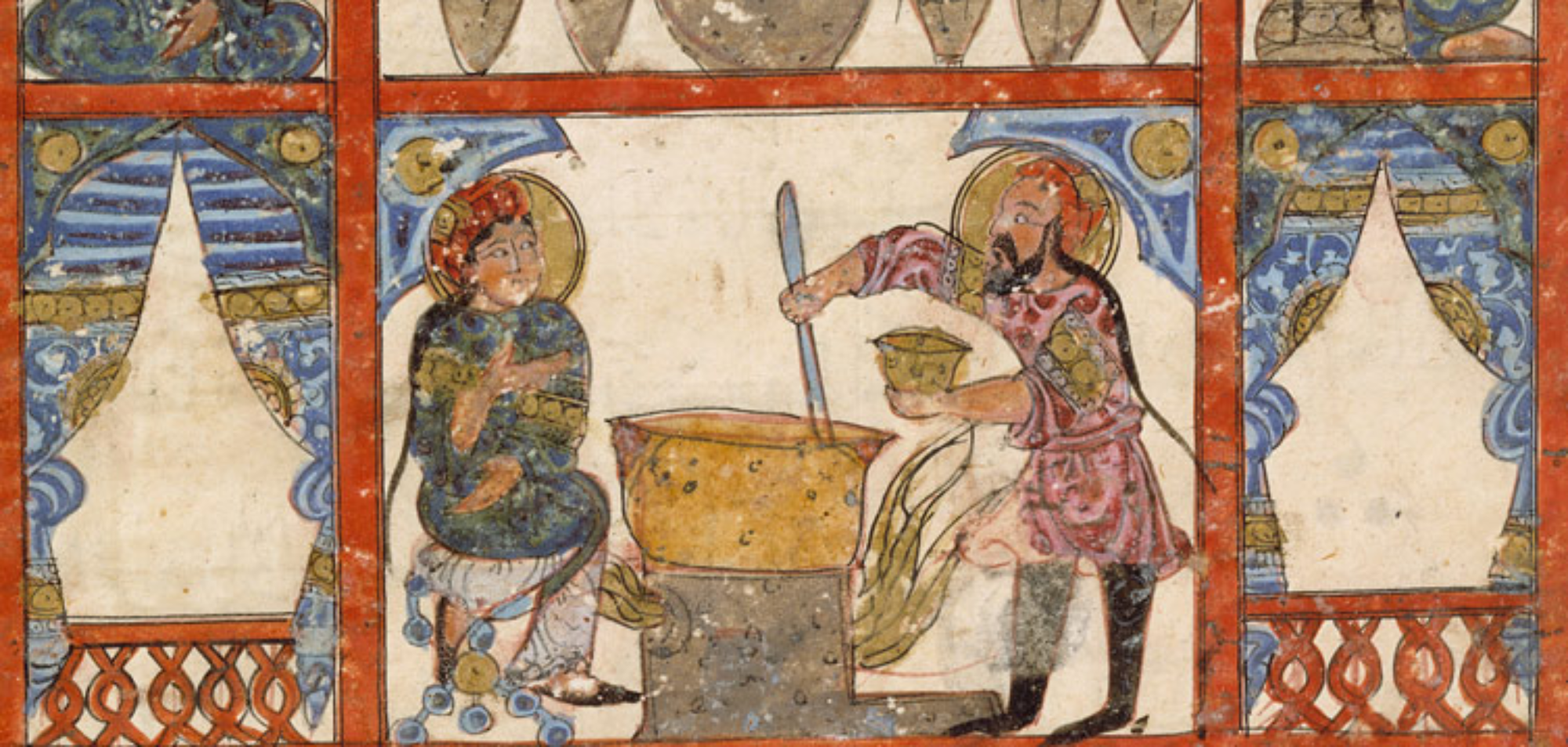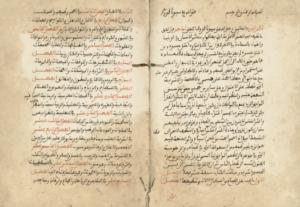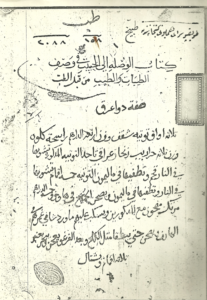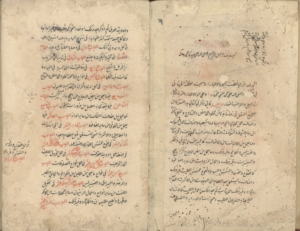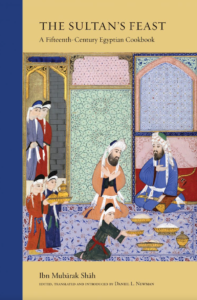The earliest extant examples of cooking recipes are to be found in Mesopotamia, thirty-four of them written in Akkadian cuneiform on three clay tablets from the 18th century before the Christian era (BCE), and an additional one from the 6th/5th c. BCE.
In ancient Greece, the first cookery books emerged in the second half of the fifth century BCE, but only fragments remain. The only recipe collection from Antiquity that has survived in its entirety dates back to the reign of Emperor Tiberius (1st century CE), though it was probably only gathered in the fourth (or fifth) century; De re coquinaria (‘On cooking’) contains 478 recipes from a wide variety of sources, and is attributed to one Caelius Apicius.
Whilst it would take another ten centuries for other cookery books to be produced in the European continent, the Arabic culinary tradition burst onto the scene with a bang in the middle of the tenth century, when a certain al-Warrāq, about whose life nothing is known, compiled a culinary treatise titled Kitāb al-ṭabīkh [wa iṣlāḥ al-aghdhiyya al-ma’kulāt wa ṭayyib al-aṭʿima al-maṣnū`āt] (‘The Book of Dishes, the best food and the finest preparations’), which contains over 600 recipes.
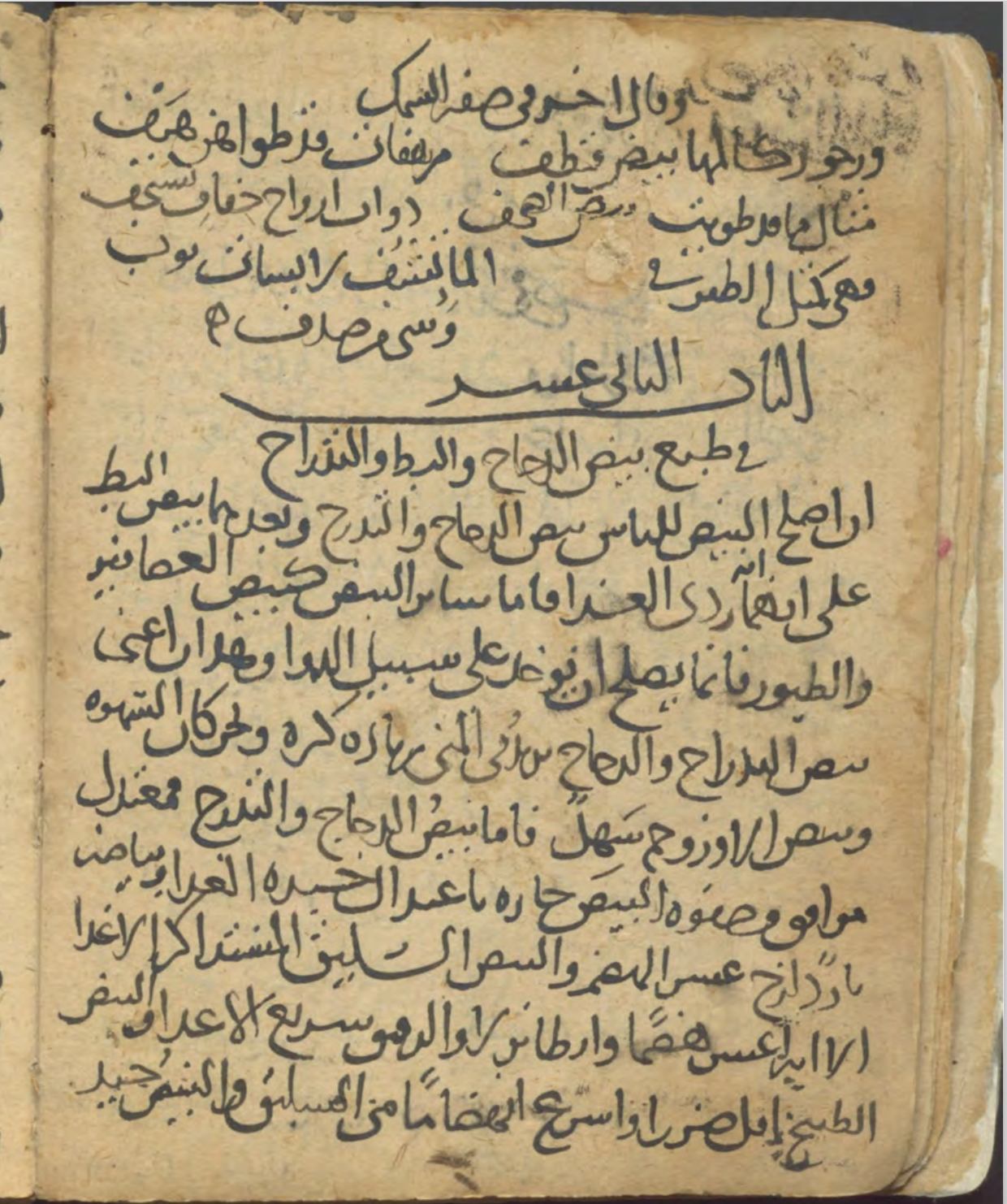 (Helsinki mss Arab 27, beginning of Chap. 12, on ‘cooking the eggs of chickens, ducks and partridges’)
(Helsinki mss Arab 27, beginning of Chap. 12, on ‘cooking the eggs of chickens, ducks and partridges’)
A recently discovered manuscript, entitled Taṣānīf al-aṭʿima (‘Categories of Foods’) and held at the Wellcome Library (London) clearly reflects the same early Abbasid tradition.
For centuries to come, gastronomic writing would remain the solve preserve of the Arab-Muslim world, with manuals being produced in the East (Baghdad, Aleppo, Egypt) and West (Muslim Spain, Morocco, Tunisia).
Nearly thirty culinary treatises are known by name only from al-Warrāq’s time, and before, the earliest probably dating back to the late 8th/early 9th c.
In addition, a total of nine complete cookery books have survived, containing a total of approximately four thousand (!) recipes.
The authorship of the books is not always straightforward, and in most — if not all — cases, they are compilations, with possible additions by the compiler. It is, however, certain that they were written/compiled as guides for cooks, rather than for the general public.
The importance of gastronomy in Arab culture, especially during the Abbasid caliphate, is also evidenced by the fact that culinary treatises were not the sole preserve of the practitioner, and a number of scholars, poets and even several calliphs are known to have contributed to the genre. Unfortunately, none of their works has survived.
The list below shows that 13th century may be called the Golden Age of Arabic cookery books as it witnessed no fewer than five. After another text in the 14th century, the final Arabic culinary treatise until the modern age was compiled in the first half of the 15th century.
13th century
- Muḥammad Ibn al-Ḥasan Ibn Muḥammad Ibn Karīm al-Kātib al-Baghdādī: Kitāb al-ṭabīkh [161 recipes] – [Baghdad]
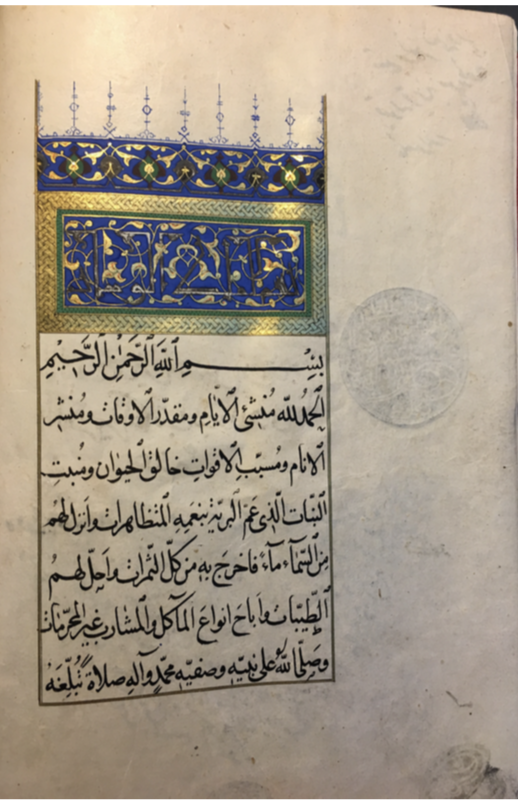 (al-Baghdādī, Kitāb al-ṭabīkh, British Library, Or5099, fol. 1b)
(al-Baghdādī, Kitāb al-ṭabīkh, British Library, Or5099, fol. 1b)
- Anon., al-Wuṣla ilā ‘l-ḥabīb fī Waṣf al-ṭayyibāt wa ‘l-ṭīb (‘Reaching the Beloved through the Description of Delicious Foods and Flavourings’) [635 recipes]– [Aleppo]
- Anon., Kitāb al ṭabīkh [526 recipes] – [Spain (al-Andalus)]
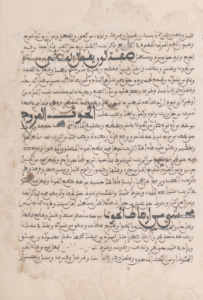 (BNF mss arabe 7009, fol. 55, fish recipes)
(BNF mss arabe 7009, fol. 55, fish recipes)
- Abū l-Ḥasan ʿAlī Ibn Razīn al-Tujībī, Faḍālat al-khiwān fī ṭayyibāt al-ṭaʿām wa ‘l-alwān (‘Remainders on the Table as regards the Finest Foods and Dishes’) [480 recipes] – [al-Andalus, Tunisia]

- Kanz al-Fawā’id fī tanwīʿ al-Mawā’id (‘Treasure of Benefits in the Variety of Dishes’) [839 recipes] – [Egypt]
(Wellcome MS 260, opening pages)
14th century
Anon. Kitāb Waṣf al-aṭʿima al-muʿtāda (‘The Book of the Description of Familiar Foods’) [480 recipes] – [Egypt]
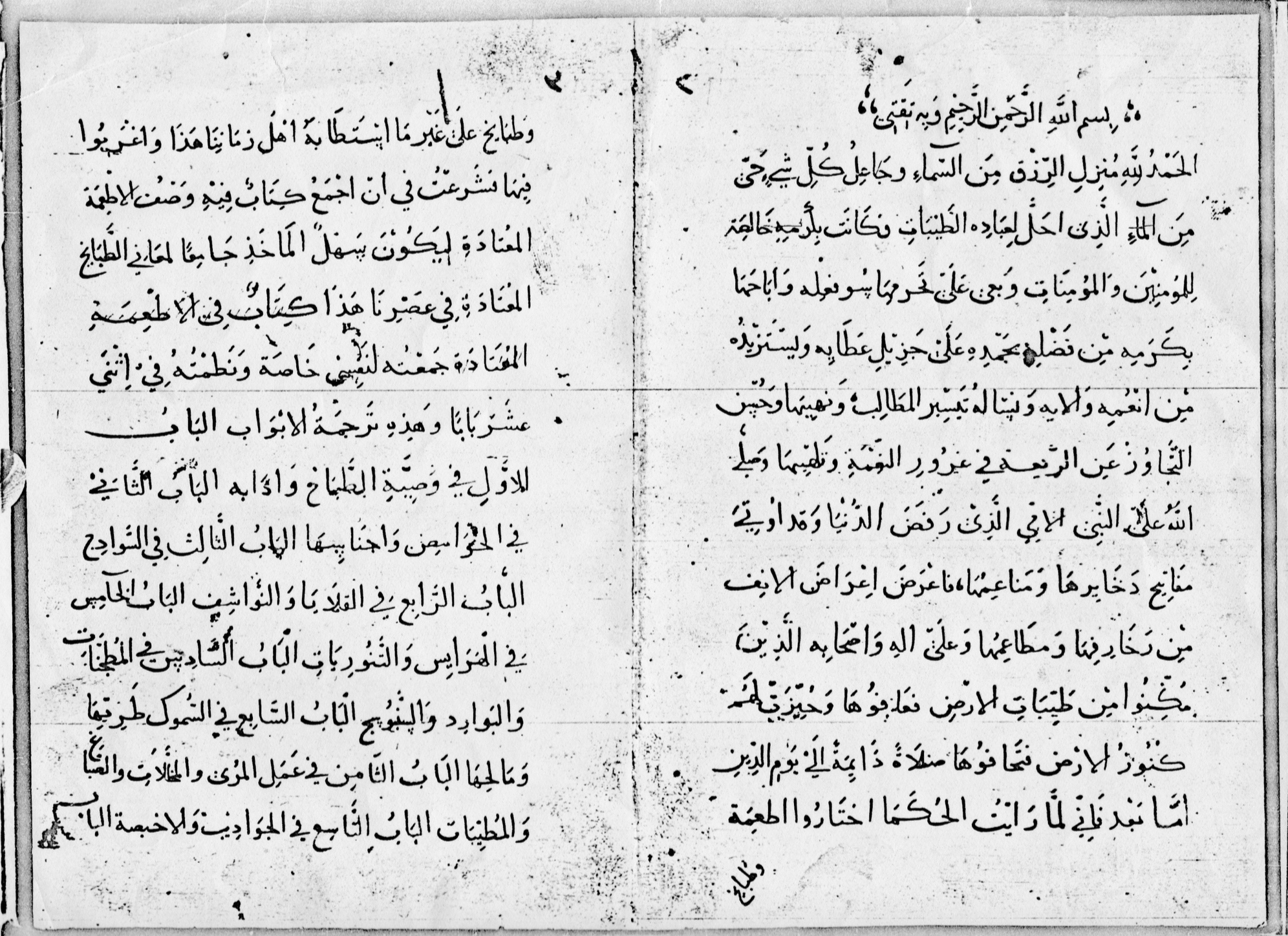 (Cairo mss Sina’ah 52, opening pages)
(Cairo mss Sina’ah 52, opening pages)
- Kanz al-Fawā’id fī tanwīʿ al-Mawā’id (‘Treasure of Benefits in the Variety of Dishes’) [839 recipes] – [Egypt]
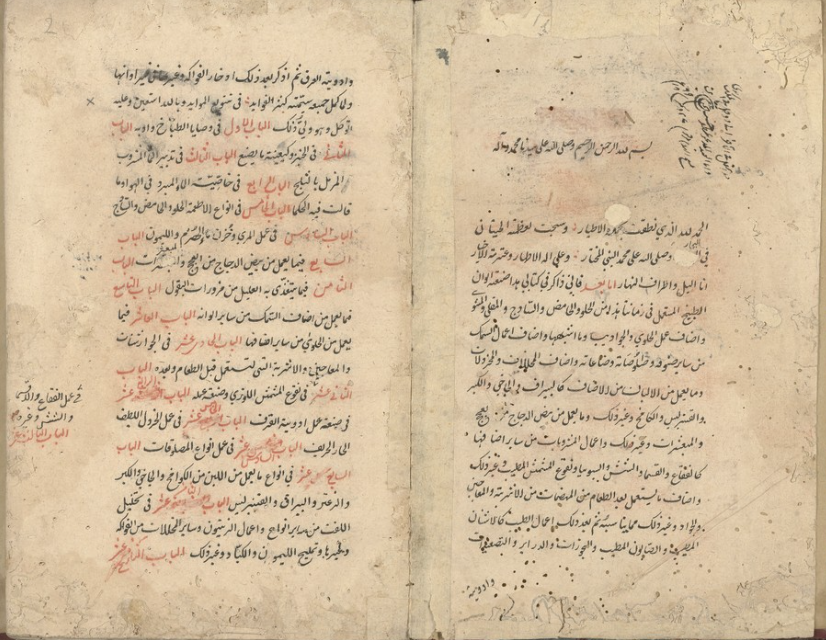 (Wellcome MS 260, opening pages)
(Wellcome MS 260, opening pages)
15th century
- Jamāl al-Dīn Yūsuf Ibn Ḥasan Ibn ʿAbd al-Hādī al-Ṣāliḥī, Ibn al-Mibrad (al-Mubarrad) (1437-1503), Kitāb al-ṭibākha [44 recipes] – [Damascus]
- Shihāb al-Dīn Aḥmad Ibn Mubārak Shāh (1403-1458), Zahr al-ḥadīqa fi ‘l-aṭʿima al-anīqa (‘Garden flowers in elegant food’). [332 recipes] – [Egypt]
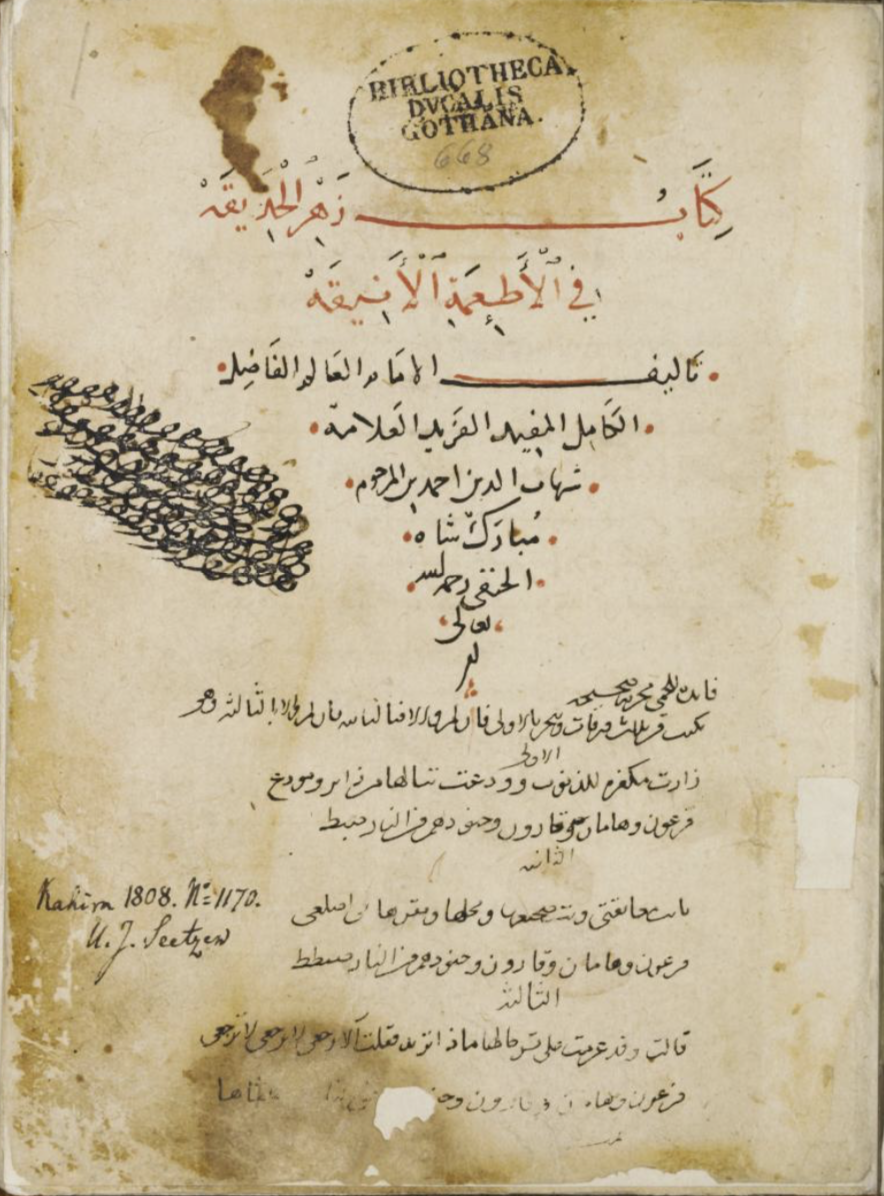 (Mubārak Shāh, Kitāb zahr al-ḥadīqa fi ‘l-Aṭ’ima al-anīqa, Gotha 1344, cover)
(Mubārak Shāh, Kitāb zahr al-ḥadīqa fi ‘l-Aṭ’ima al-anīqa, Gotha 1344, cover)
